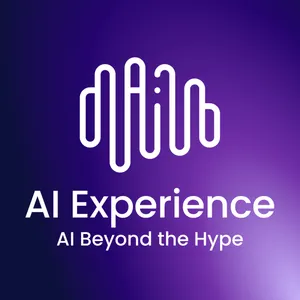Podcast Summary
AI Regulation vs Innovation: Strict AI regulations in Europe may limit consumer access to new technologies, but could also encourage other regions to reconsider their regulations to avoid hindering innovation. Meanwhile, AI investment is shifting from cryptocurrency to more stable areas like AI in Texas.
The relationship between artificial intelligence regulation and innovation is under scrutiny, as tech giants consider withholding their products from the European market due to strict regulations. This decision could limit European consumers' access to new technologies, but it might also encourage other regions to reconsider their own regulations to avoid hindering innovation. Meanwhile, in Texas, cryptocurrency miners are pivoting towards artificial intelligence as a more stable and promising area of investment, given the volatility of the cryptocurrency market. These developments underscore the ongoing tensions between regulatory objectives and commercial strategies, and their implications for the future of AI innovation.
AI and cryptocurrency: Cryptocurrency miners are transitioning to AI, but a consent crisis with publishers and platforms is limiting data access, potentially impacting AI's accuracy and affecting various entities.
The tech industry is experiencing a significant shift as cryptocurrency miners turn towards artificial intelligence (AI) for more stable and potentially lucrative opportunities. Mining facilities are being repurposed into data centers for AI, leveraging the skills and infrastructure developed for cryptocurrency mining. However, the data fueling AI systems is rapidly disappearing due to a consent crisis with publishers and online platforms preventing data collection. This decline in data access could limit the ability of AI systems to provide accurate outputs and impact not only AI companies but also researchers, academics, and noncommercial entities. Open source models like OpenAI's Chargept, Google's Gemini, or Entropix Cloud may be a potential solution, as they rely on vast amounts of data for learning and producing high-quality outputs. The ethical and legal challenges surrounding the use of online data are also emerging as tensions between AI developers and data owners continue to grow.
Lyama 3.1 AI model: Meta's open source Lyama 3.1 AI model, the largest to date, outperforms private models and can generate images based on specific likenesses. It's predicted to surpass ChatGPT in usage by year-end, costs less than GPT 4, and is being collaboratively deployed by Meta with tech companies.
Meta has released Lyama 3.1, the largest open source AI model to date, which outperforms private models like GPT 4 and Sonnet. This model can generate images based on a specific person's likeness, and Meta predicts it will surpass ChatGPT in usage by the end of the year. The development cost is estimated to be over $100 million, but Meta continues to release it under an open source license. Meta is collaborating with major tech companies to help developers deploy their own versions of Lyama 3.1, which costs about half the price of GPT 4. The model's training data remains vague, leading to criticism. Capgemini expects that by 2025, autonomous AI agents capable of communicating with each other will emerge, operating in a distributed and collaborative manner to solve complex tasks. These technologies, defined as AI agents, are more advanced in the US than Europe, and 82% of companies plan to integrate them within 1-3 years. This suggests a significant shift towards AI autonomy in the business world.
AI evolution: AI is transitioning from individual agents to multi-agent technologies, enabling communication and collaboration, but monetization remains a challenge for many companies, and investments vary greatly by industry
We're witnessing the evolution of AI from individual agents performing tasks to multi-agent technologies where agents communicate and collaborate with each other. This transition marks the next major wave in AI, with agents capable of understanding, interpreting, adapting, and acting independently. However, despite the potential for these advanced AI systems to replace human workers in certain tasks, many companies are still in the experimental phase and face challenges in monetizing the technology. Investments in AI vary greatly by industry, with aerospace and defense leading the way at 88%, while retail lags behind at 66%. Despite these differences, the AI landscape continues to evolve rapidly, and we'll be back on August 30th to keep you updated. Remember to tune in every Sunday for the AI Experience podcast, where we explore how AI is changing the world.
